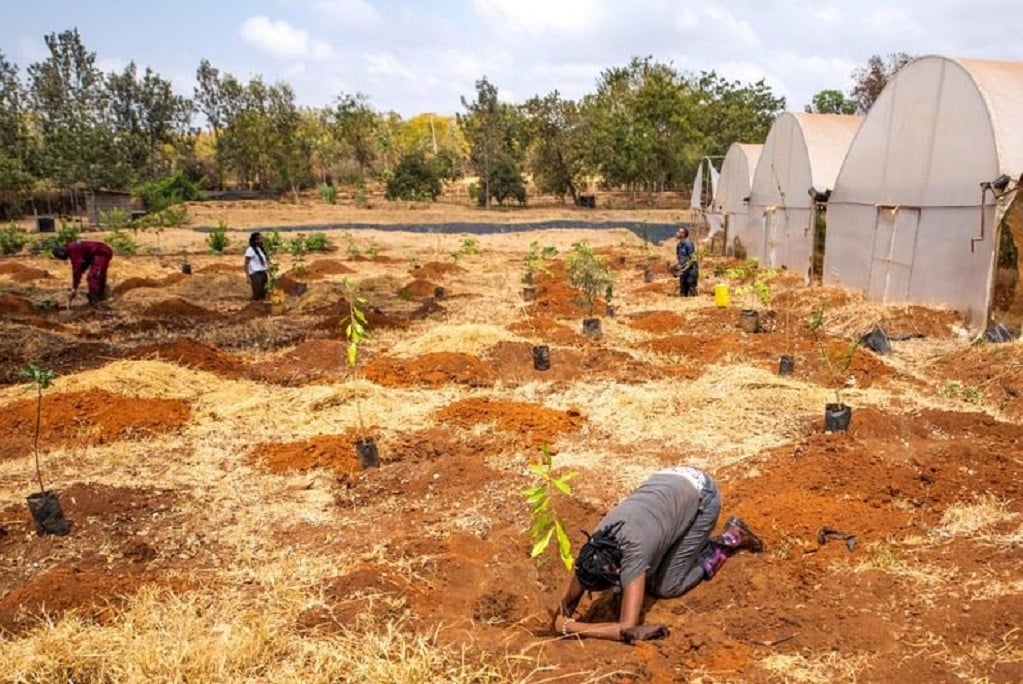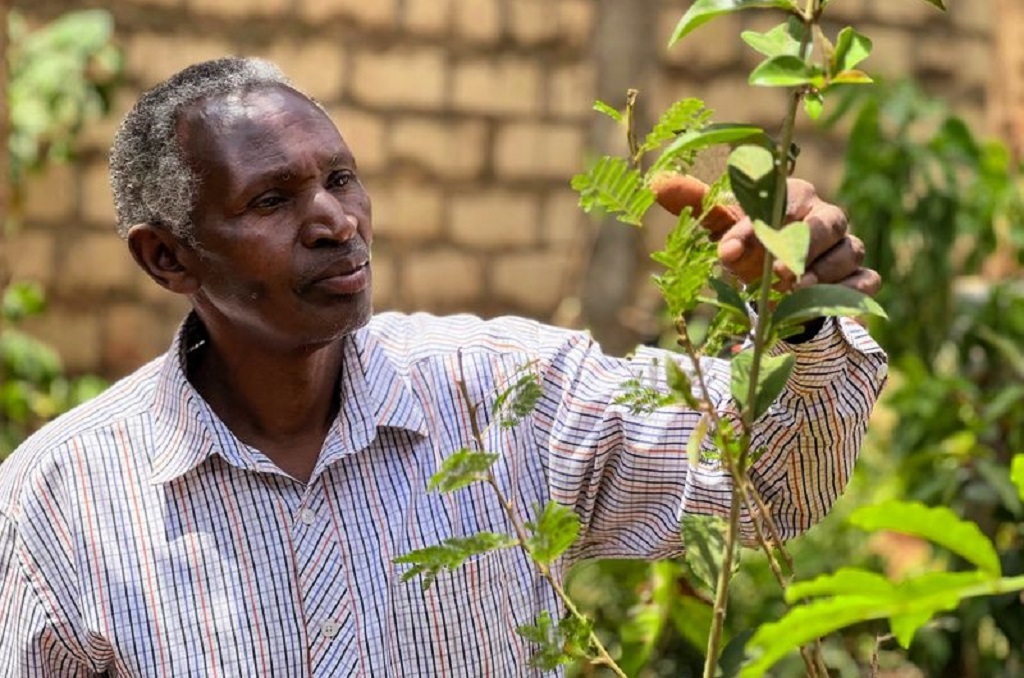
- A woman in Kenya has planted over 100 endangered native tree seedlings to help combat climate impacts on farming.
- Joan Wandegi Nthiga believes indigenous trees can help improve the whole ecosystems of farms.
- Over the years, endemic Kenyan varieties have been abandoned for fast-growing and commercially attractive trees.
- For climate change news and analysis, go to News24 Climate Future.
At Joan Wandegi Nthiga's family farm in Embu, a county in eastern Kenya, she and a small group of friends have gathered to discuss the weather, a common topic of conversation these days, and its impact on their area.
"The geography has changed dramatically since we started cultivating here over 40 years ago," Nthiga said.
Like many other parts of the country and region, Embu is now locked in the extreme weather pattern of successive droughts and floods.
"It was a whole forest before. We cut down the trees in order to make room to grow food and fruits. But as the years went by, the soil was depleted just because of the products that we were using and the climate changed drastically.
"So the amount of rain we were getting 20 years ago is significantly different from the amount of rain we've gotten five years ago, for example, and that means that it has affected the amount of food we can grow," said Nthiga.
She and her friends believe that reviving age-old farming practices could help them move their operational setting from survival to thrive.
READ | OPINION | Sustainable farming has great potential in Africa. Why does it face so many roadblocks?
Regenerative agriculture is a new global trend, blending modern sustainable techniques and traditional methods to improve soil fertility, boost harvests and ensure food quality, even in volatile conditions.
Proponents like Nthiga claim that African farmers traditionally worked with the land instead of against it by planting mutually symbiotic crops, integrating livestock, and practicing indigenous agroforestry.
She is determined to propagate many of the 1 100 native species that the International Union for Conservation of Nature (IUCN) categorises as once having been prevalent in Kenya.
"We need to improve the whole ecosystem of the farm, and I believe that indigenous trees can do that for every single smallholder farmer.
"So even if a smallholder farmer plants 10 trees, for example, we want to demonstrate that those 10 trees can drastically improve the soil, the biodiversity and the nutrients of the whole farm in general so that they can grow more food and get more money for the household," Nthiga explained.
Endemic Kenyan varieties have largely been abandoned for fast-growing and commercially attractive trees like the Australian blue gum and grevillea.
They were introduced with other exotic species in colonial times for their timber and as shade for coffee and tea plantations.
READ | Army of pest-munching ducks keep South African vineyard blooming
But studies show that some of these exotics consume a relatively high volume of water and are detrimental to certain forms of life in the ecosystems they cohabit.
A 2018 report cosponsored by the Kenya Forest Service (KFS) and the United Nations Development Programme (UNDP) stated that Kenya lost about 12 000 hectares of forest yearly due to logging, conversion to farmland, infrastructure expansion, and increasing demand for wood products and firewood.
The Kenyan government recently launched a campaign to plant 15 billion indigenous trees by 2032, restoring the nation's forest cover to about 30%. Previous drives saw forest cover rise from 6.9% in 2013 to 12.1% last year.
Farmers like Nthiga are determined to do their bit, but given the difficulty most encounter when accessing information, she sought out 70-year-old Charles Kamuri, who has specialised in native trees since 1986.
Kamuri urges that environmental studies be made mandatory in Kenyan schools and for a return to post-colonial initiatives that espoused regenerative agricultural practices that are now being touted worldwide.
"There are even those people who we are called extension officers, agriculture extension officers. They set aside a few days when they could meet the farmers, and I tell you, by then, everything was going very well because they could show farmers how you can operate a small nursery in your home and even how to prune your tree," Kamuri said.
Nthiga has planted more than 100 different kinds of seedlings that Kamuri helped her identify and source. They were put into the ground in Embu just as the long-awaited rainy season began across much of the region.
Simon Macharia owns a poultry farm nearby. He has also suffered the effects of the recurring droughts from 2008-2011 that cost Kenya about $12 billion.
Macharia believes Nthiga's adoption of agroforestry and regenerative agriculture, in general, is something other farmers should emulate.
"It's good to have that mix of indigenous trees, and a lot of them are also species that we might be losing. And you find some of these trees are medicinal. Some of them have root systems that are really good at breaking down this murram into fertile soil. So it's an awesome idea, and I'm hoping the rest of my neighbours will also follow suit," Macharia said.
Nthiga's interest in Kenyan tree species has branched into an early-stage large-scale nursery and a social media platform called "I Grew A Forest", where those interested in regenerative agriculture can access local tips, anecdotes, inspiration, and a community of like-minded people.
"In 10 years, I want this to be a full mature indigenous forest that is rich in biodiversity, that the greenhouses will all have been renovated, and that they will be full of viable seedlings that can then be grown on other farms, that can then enjoy the fruits of what indigenous forest can bring to a landscape."
bird story agency




 Publications
Publications
 Partners
Partners













